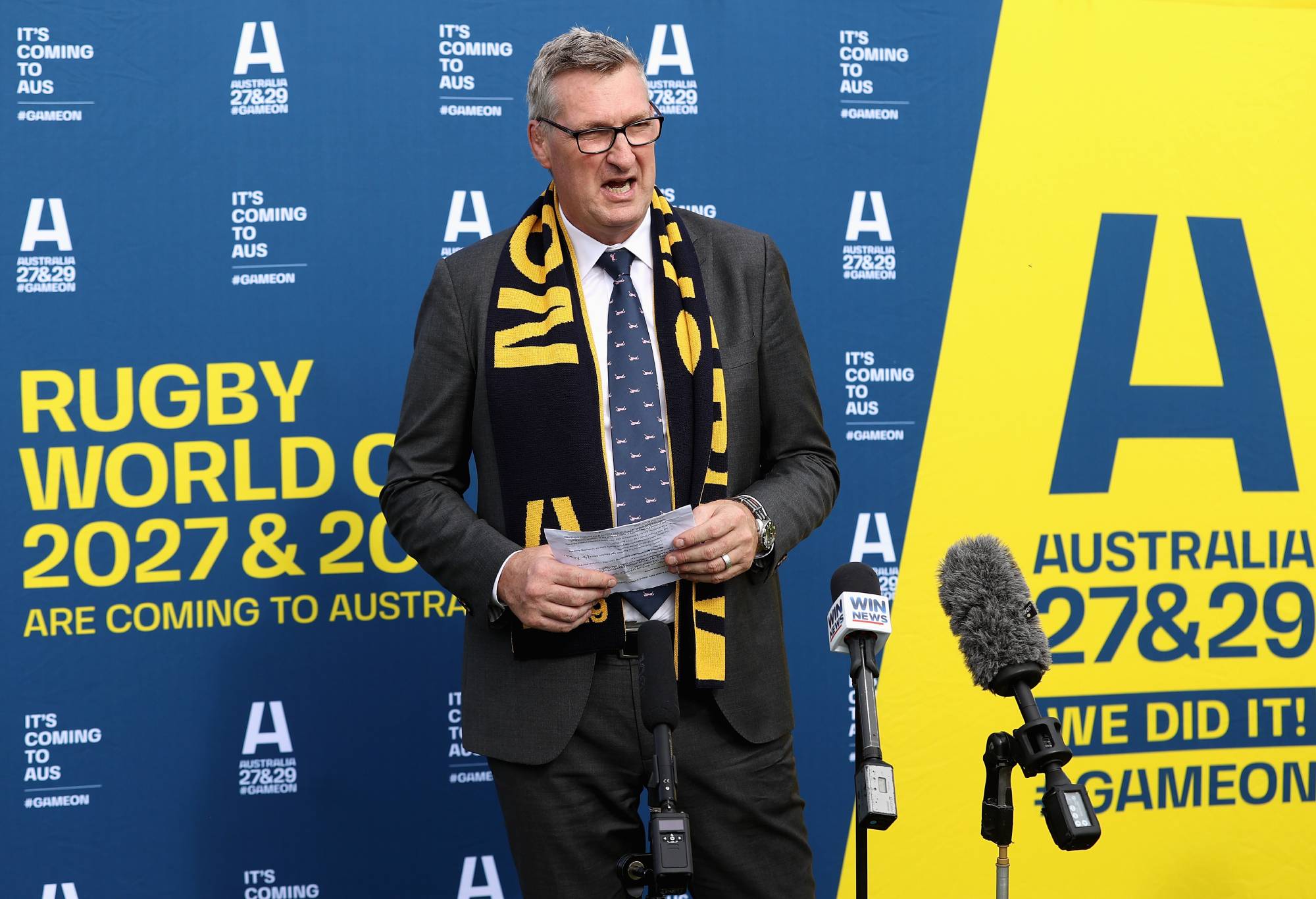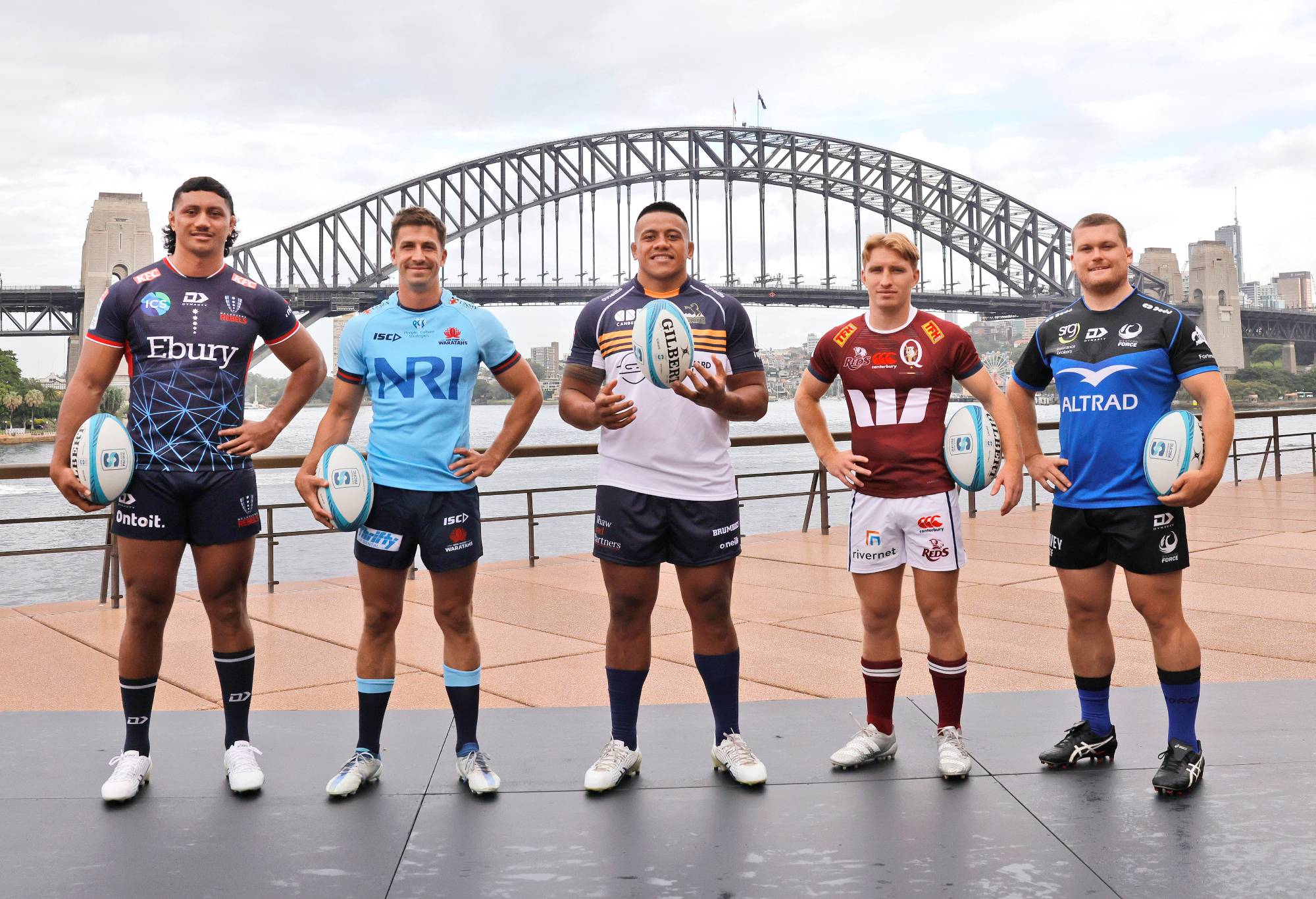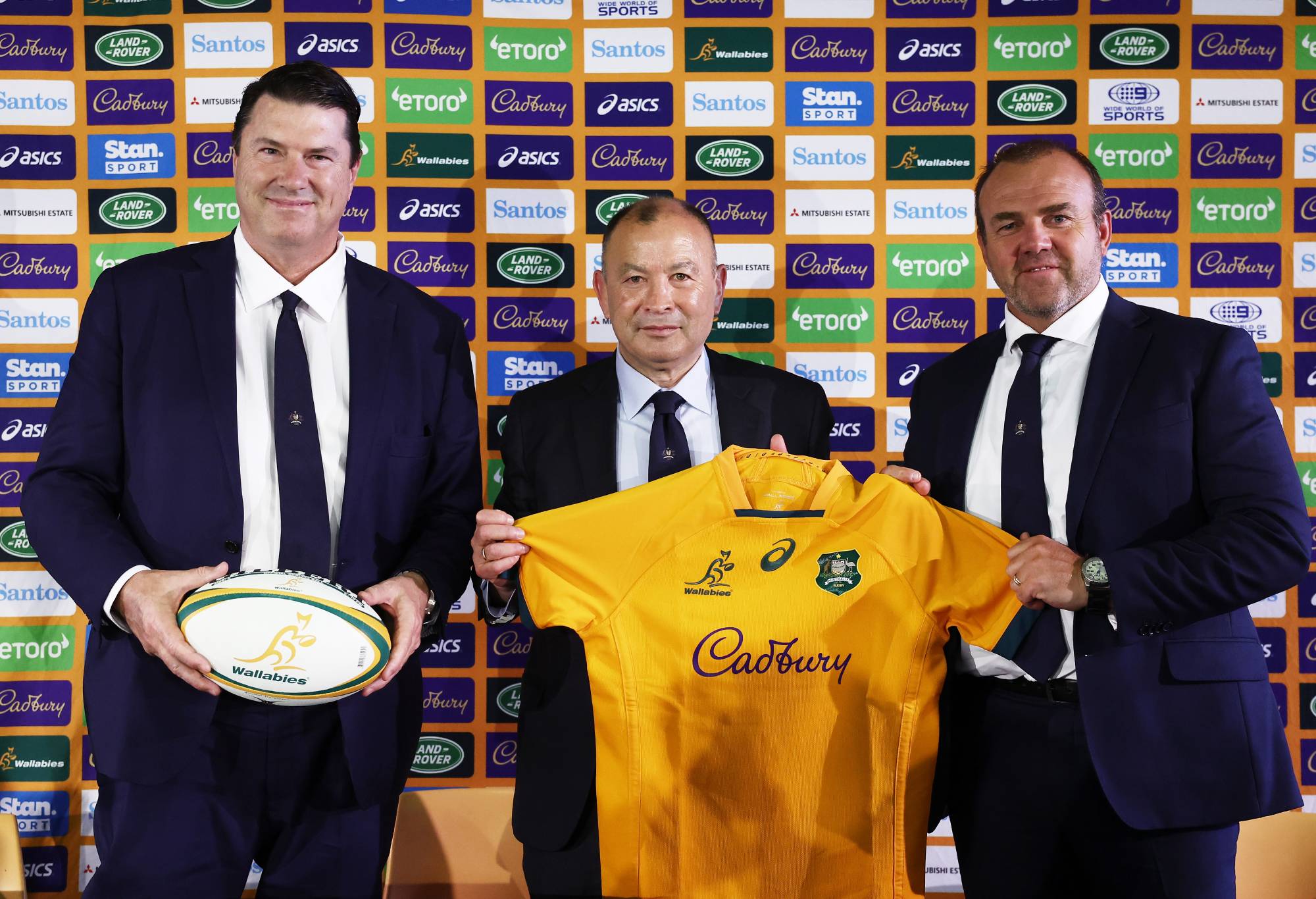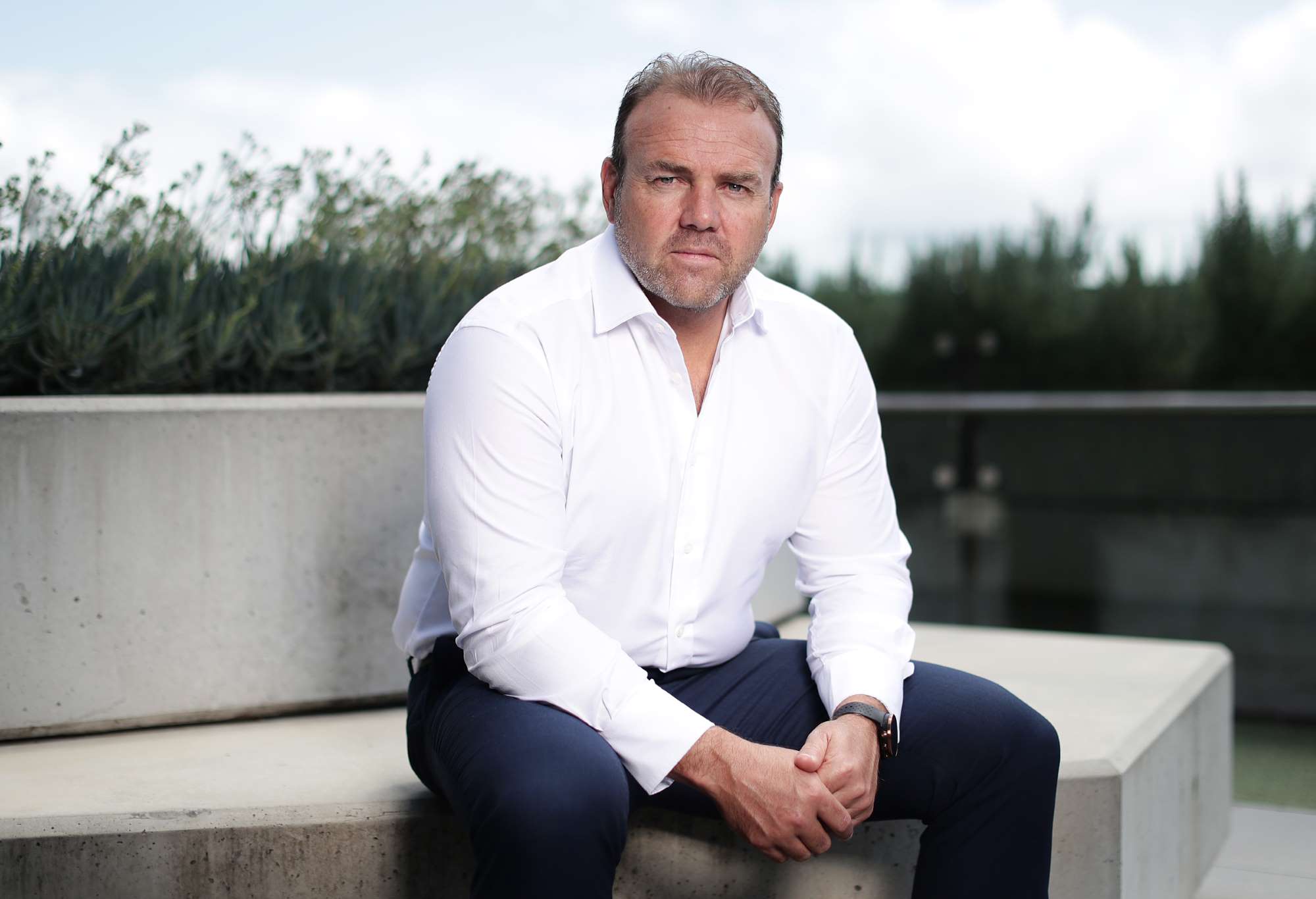Fiscal discipline, and not over inflated salaries, despite the wishful flutter on headline acts, remains Rugby Australia’s major priority coming out of the COVID pandemic as the governing body and the Rugby Union Players’ Association announced their Collective Bargaining Agreement.
While the CBA contained little in the way of headlines, the announcement, which comes months after it was settled, saw both parties come together to iron out a responsible path forward after a turbulent period in the game’s history.
Both parties were celebrating the steps forward, which sees relatively small, though significant, increases in funding for both the women’s and men’s game.
Wallabies players will earn $8,000 match payments, an increase from the previous CBA. Other bonuses will be on offer for major tournaments, including Bledisloe Cups, World Cups and 2025’s Lions series.
RA will contract up to 35 female players, who will earn up to $52,000 while offering maternity leave, too.
But the CBA, which will run through until 2026, will also be flexible, with more money expected to flow through the game over the coming years with RA set to go to market before the World Cup with their private equity pitch.
“We also have the contemplation of capital investment coming into the market, so this document has the ability to reopen some of those limbs and then have us negotiate again in a fair and equitable and transferable manner how we can distribute that amongst the entirety of the ecosystem,” RUPA president Justin Harrison told reporters.
The NSW Waratahs Women take on Force and the Tahs men battle the Chiefs in an enthralling double-header on Friday, 24 March at Allianz Stadium.
Get your tickets here.

RUPA CEO and Classic Wallaby Justin Harrison says the new CBA is a success. Photo: Cameron Spencer/Getty Images
The prospect of private equity dollars has been on the doorstep over the past two years, with Rugby Australia chairman Hamish McLennan openly speaking about the prospect of selling off around 12.5 per cent of its commercial arm in 2021.
Since then, the sands have shifted further with RA contemplating selling off up to 20 per cent so that it doesn’t have to do it ever again.
RA has the benefit of seeing how other national unions, including New Zealand Rugby who passed their own deal worth $200m last year, not only have used the added funds but also what to do and what not to do.
Significantly, however, private equity hasn’t necessarily been the golden goose, with two of England’s rugby clubs going under this season, while the entire Premiership has struggled financially coming out of COVID.
“When you get money coming into the game – be that through an improved program, which we’re going to have over the next couple of years – you’ve got to make sure that you’re growing your economy in line with the revenue that you’re getting in and not sort of counting your chickens before they hatch,” RA CEO Andy Marinos said.
“I think the fiscal discipline piece is going to be really important, and that’s one thing we all had to learn over the last three years. We’ve come out of a period where we lost $27 million in 2020. We pulled the game back into profit position for last year and going into this year, a World Cup is another year where we’re really going to have to manage ourselves as we get through a reduced period, but we’ve had to adopt real stringent fiscal discipline as we go through and that discipline is going to continue going forward and that will certainly help us be more sustainable.”
Currently, Australia’s Super Rugby franchises have a $5.5 million salary cap.

Rugby Australia CEO Andy Marinos has left the door open for a salary increase to Super Rugby franchises. Photo: Jenny Evans/Getty Images
Asked whether RA would look to increase the cap when private equity is passed, Marinos said they would consider a rise but stressed it was vital to spend within their means, particularly with the governing body expressing a need to grow the game at the grassroots level.
“With the ability and with good financial improvement within the ecosystem, we could certainly be looking at that,” he said.
“I think we’ve got a stated intent that we’d obviously like to grow the investment into that part of our business. But, again, it’s difficult to say whether it’s a big amount or a small amount until we understand how that’s going to be linked to the overall financial performance of the business.
“We’ve got a big responsibility, and a big focus of ours is to continuously make sure we are investing into the community game, grassroots and into our pathways because that’s where the next generation of talent is going to come.
“Certainly the framework that has been established in CBA Six, as Justin said, is going to allow for a capital event, but nothing we’re going to do is going to be implemented unless there’s a sound financial rationale and logic behind that doesn’t put the game into the situation that it was pre-COVID, where it wasn’t the best balance sheet going into COVID and we certainly don’t want to get back to that position going forward.”

Wallabies coach Eddie Jones (C), Rugby Australia chairman Hamish McLennan (L) and Rugby Australia CEO Andy Marinos (R) are leading the Wallabies through its “golden decade”. Photo: Matt King/Getty Images
Marinos also played down suggestions the governing body would wastefully throw big contracts at talent from the NRL, but didn’t rule out the possibility of trying to sign a player from the competition.
“I don’t know which players have been getting $700,000/800,000 in rugby at this stage, but we’re in a competitive sporting market and landscape and obviously we’re wanting to grow the performance of our teams and the performance of our players over time,” Marinos said.
“And again, I just think market forces will determine that, but we’ll be operating within the confines of what we’ve got at the moment.”
His comments came a week after Tom Wright’s agent, David Rawlings, lashed the governing body for not having its priorities in order.
“The rugby players in general are sick of hearing about it,” Wright’s player agent David Rawlings told News Corp.
“A lot of the boys are thinking, if they want NRL players, we’ll have to look elsewhere. It’s become a debacle.
“They’ve just lost Pete Samu to Bordeaux, who’s been in the rugby system for a long time.
“They’ll lose others as well if this keeps up and they only want to talk about NRL players.”

Andy Marinos says RA have not offered any big deals to NRL stars yet. Photo: Mark Metcalfe/Getty Images
While Rawlings’ comments are understood to have sprung RA into action with regards to Wright, with both parties moving towards a contract extension for the incumbent Wallabies fullback, The Roar understands few are concerned with Eddie Jones’ appreciation of the NRL and its players.
Harrison, the former Lions conqueror and Brumbies great, attempted to play a straight bat on the subject but added that successful teams, especially the Wallabies, led to greater returns for the game Down Under.
“I don’t think this is necessarily the forum for me to offer my opinion, I’m here to represent the player membership,” Harrison said.
“One thing we’re interested in in the professional environment is having competitive rosters, so five provincial teams across all of our men’s and women’s [Super Rugby] programs and sevens programs, who are competitive in taking the stage and the arena with the capacity to have a squad that’s going to be in a winning environment.
“We know that winning teams generate commercial return, we know that that creates heroes and captures hearts and minds of boys and girls and we start to see the waterfall effect at community level because they start to see, aspirationally, where they would like to be and how they would like to end up… whether or not it’s targeting the right person; people take themselves to market and if they can create market tension then that’s not something we’ll have an influence on.
“What we’re interested in is the fair and equitable distribution of a resource that is limited at the moment, but has the capacity to grow. Now if part of that is targeting certain players who are going to change the performance dynamic of the entirety [rugby ecosystem], not only on the field but also off the field in terms of commercial viability, then that’s something that needs to be welcomed.”
































































































